US withdrawal from Afghanistan shows collapse of West, emergence of new powers: Syrian President Assad
Syrian President Bashar al-Assad says the United States’ withdrawal from Afghanistan shows the decline and collapse of Western powers, criticizing the US for refusing to shoulder responsibility for its actions in Afghanistan.
In a meeting with visiting Iranian Foreign Minister Hossein Amir-Abdollahian in Damascus on Saturday, the Syrian president said regional countries and Afghanistan’s neighbors know that the US refrains from shouldering responsibility for its actions and policies in the war-torn country.
He added that Iran has the capacity and needs to enter into negotiations with its neighbors and other key players in order to help the current developments in the crisis-hit country culminate in success because the Americans seek to pit Afghanistan's neighboring states against each other.
The US invaded Afghanistan in October 2001 following the September 11, 2001 attacks. American forces occupied the country for about two decades under the pretext of fighting against the Taliban. But as the US forces left Afghanistan, the Taliban stormed into Kabul, weakened by continued foreign occupation.
The Taliban wrested control of Afghanistan in August after a fierce offensive facilitated by a flash withdrawal of all of the United States’ forces from the country that had been announced by Washington back in April.
The government of Afghanistan rapidly collapsed on August 15, with President Ashraf Ghani fleeing the country in the face of lightning advances of the Taliban.
The group has pledged to allow the formation of a broad-based and representative government. Concerns, however, remain given its drawn-out history of violence.
Pointing to the political developments in Syria, Assad said Damascus interacts with the Constitutional Committee within the framework of national interests, but would not accept foreign interference.
Regarding the situation in the northwestern province of Idlib, the Syrian president also stressed the importance of an end to the occupation of Idlib by foreign forces and liberation of all occupied territories.
Diplomatic atmosphere changed in favor of Syria: Amir-Abdollahian
For his part, Amir-Abdollahian hailed close contacts between Iranian and Syrian officials as a sign of deep-rooted relations between the two countries and extended his congratulations to the Syrian president over the Arab country’s victories in the political and international arenas.
“The diplomatic atmosphere in the recent meetings of the United Nations General Assembly indicated that conditions have changed in favor of Syria,” the Iranian foreign minister added.
The top Iranian diplomat outlined Tehran’s stance on developments in Afghanistan and said, “We are in contact with all sides in Afghanistan, including the Taliban and invite them to form an inclusive government.”
He also noted that the new Iranian administration pursues its plan to achieve sustainable economic development even if the cruel foreign sanctions against the country remain in place.
Amir-Abdollahian said Iran will soon return to the Vienna talks aimed at reviving a 2015 nuclear deal it clinched with world powers with a plan to receive the necessary guarantees of verifiable implementation of obligations by the Western parties.
“If the [Vienna] talks yield results, we will take advantage of it to accelerate the implementation of our country’s development plan. But, we will not halt the advancement of our plans because of the talks,” he pointed out.
The US, under former president Donald Trump, unilaterally withdrew from the multilateral nuclear deal, officially known as the Joint Comprehensive Plan of Action (JCPOA), and reinstated crippling sanctions on the Islamic Republic, although the country had been fully compliant with the agreement.
In early April, Iran and the remaining parties to the JCPOA began to hold talks in Vienna after the US administration of Joe Biden voiced willingness to rejoin the nuclear agreement and remove the draconian sanctions his predecessor had slapped on the Islamic Republic.
Since the beginning of the Vienna talks, Tehran has argued that the US—as the first party that violated the JCPOA—needs to take the first step by returning to full compliance with the agreement. Tehran also says it will resume all of its nuclear commitments under the deal only after the US removes all the sanctions in practice.
During the meeting, Assad and Amir-Abdollahian also discussed ways to improve Tehran-Damascus relations.
Syria, Iran’s strategic ally: Amir-Abdollahian
Speaking after a meeting with his counterpart, Faisal Mekdad, the Iranian foreign minister said Syria is the strategic ally of Iran, emphasizing that Tehran has proved that it would never leave alone its friends in difficult times.
Amir-Abdollahian noted that his Syrian counterpart would make a visit to Tehran within the next days, adding, “We seek to implement the agreements we have made in recent weeks in telephone conversations between the two presidents at various political, security and economic levels.”
He expressed hope that Tehran and Damascus would improve relations in tourism, trade and joint venture.
Pointing to the latest regional developments, the top Iranian diplomat said, “There are concerns about various issues in the region. We are still witnessing the presence of terrorism and Zionism in the Caucasus region while an inclusive government with participation of all ethnic groups has not been formed in Afghanistan.”
Amir-Abdollahian arrived in Damascus earlier in the day to hold talks with Syrian officials. He was welcomed by his Syrian counterpart at Damascus International Airport.
Syria is the third destination of the Iranian foreign minister after visits to Russia and Lebanon.
It is also his second visit to Syria since assuming the post of Iran’s foreign minister. On August 29, he met with the Syrian president in Damascus.
VIDEO | Tehran residents condemn US-Israel orchestrated mosque arson, vandalism
VIDEO | South Koreans demand end to joint US military drills and provocative policy against North Korea
VIDEO | A silent grief: Palestinian man struggles to recover remains of wife, children
Hind Rajab Foundation files complaint against Israeli genocidal propagandist in US
VIDEO | Trump fighting allies on Greenland
Iran FM: Selective respect for deals now haunting Europe
Arab rights group urges UK to sanction Netanyahu over 'incitement to genocide' in Gaza
‘Political, non-constructive’: Iran slams UNHRC special session on recent riots


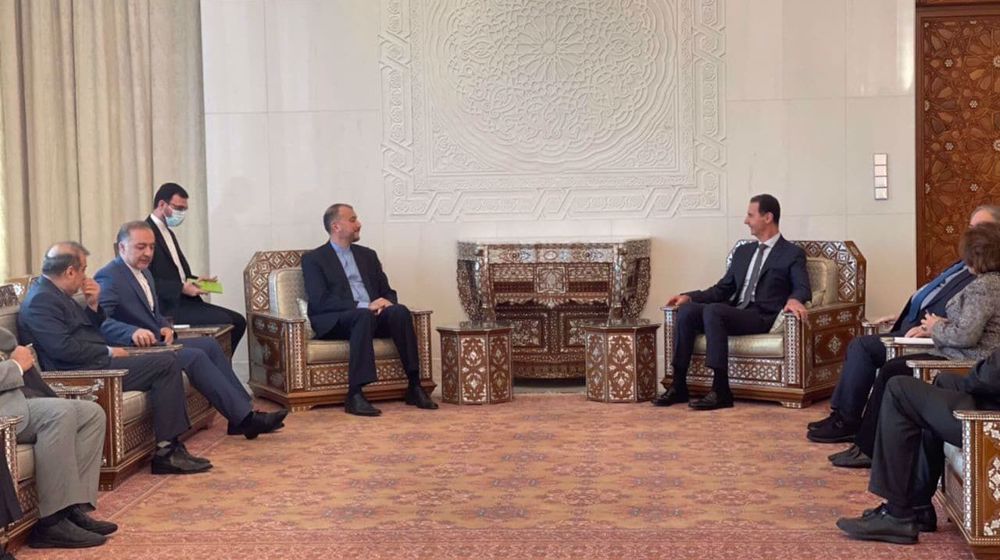
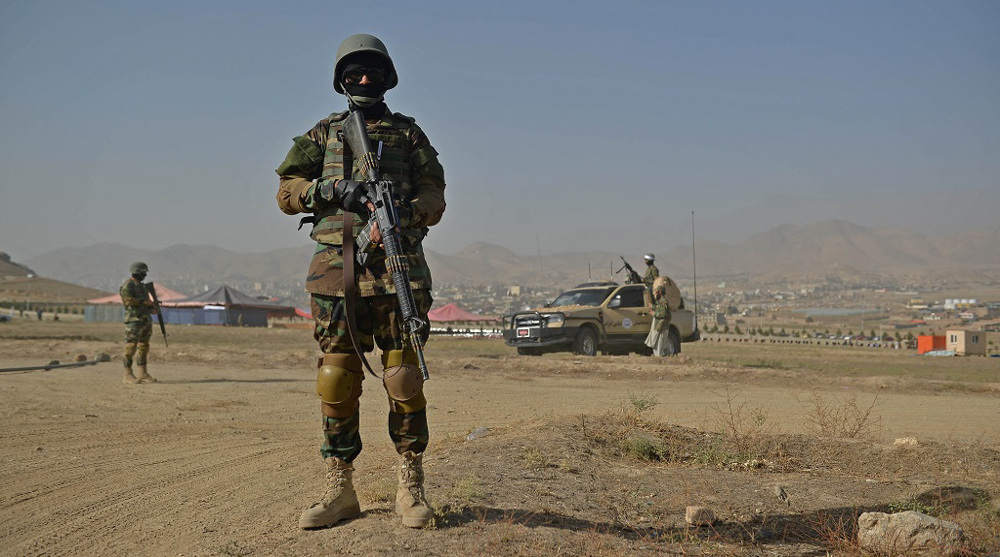
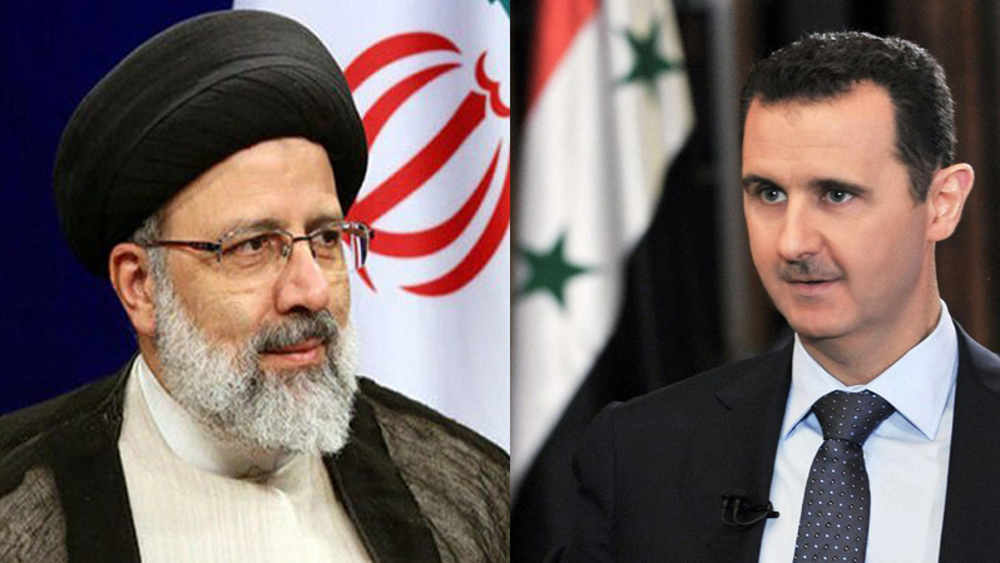
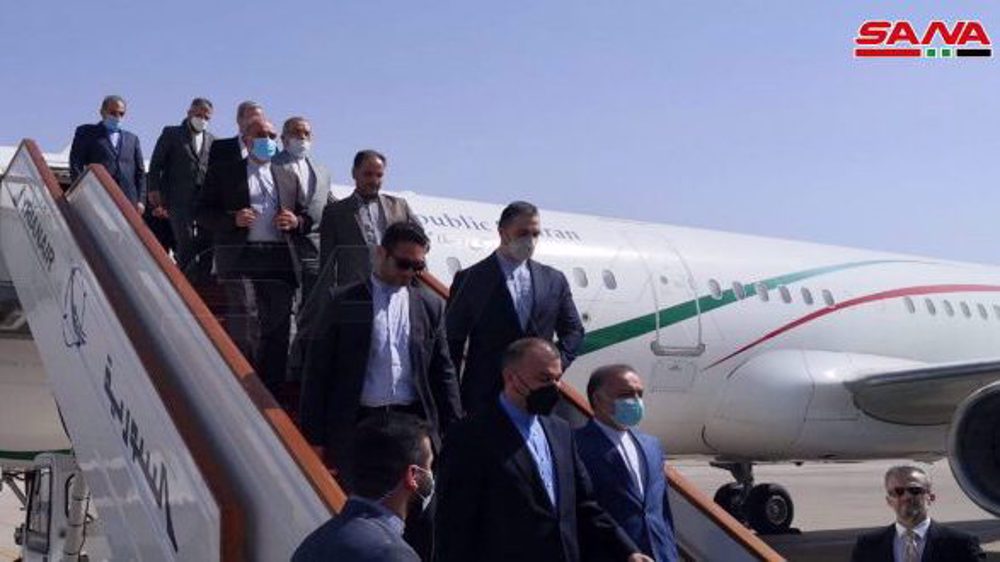
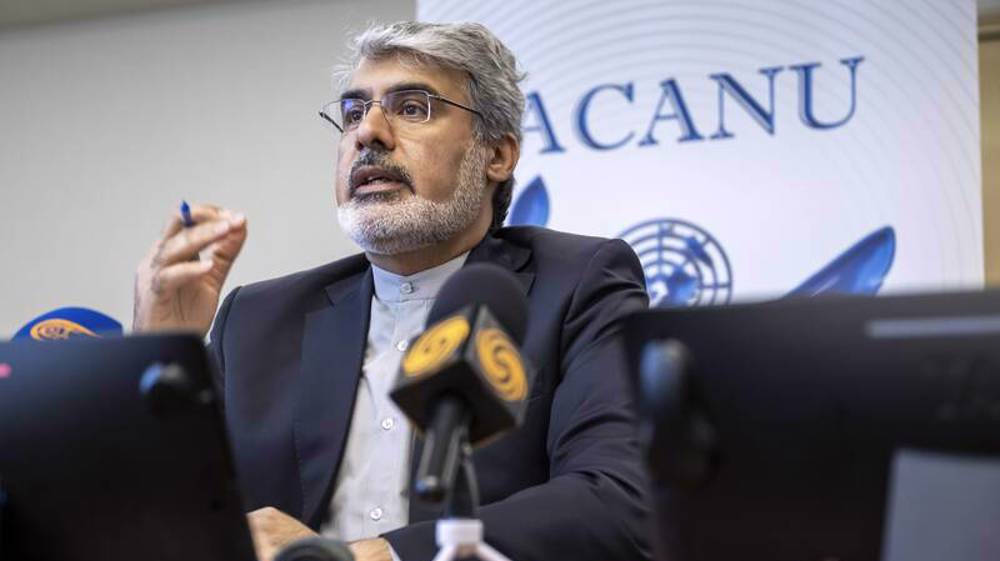
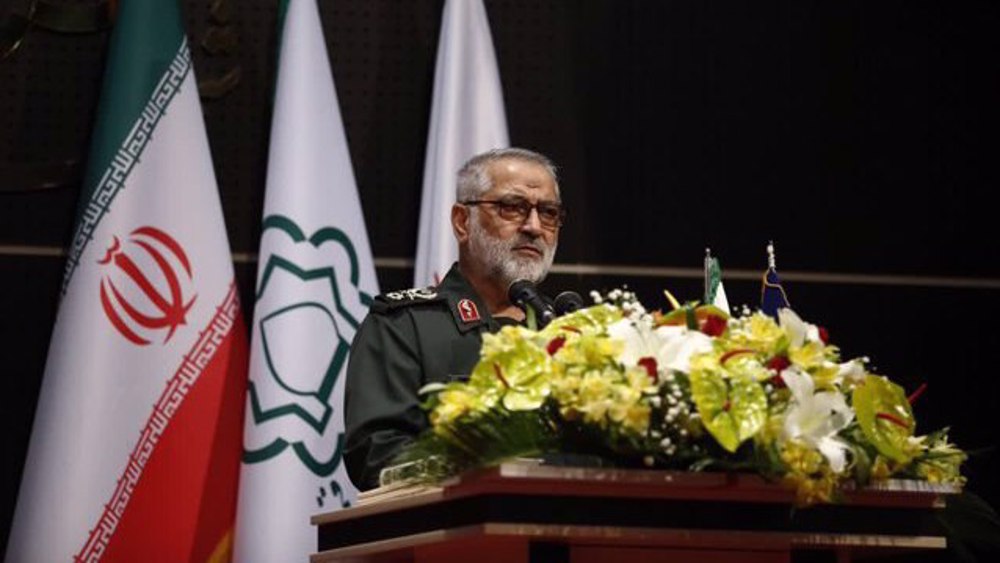
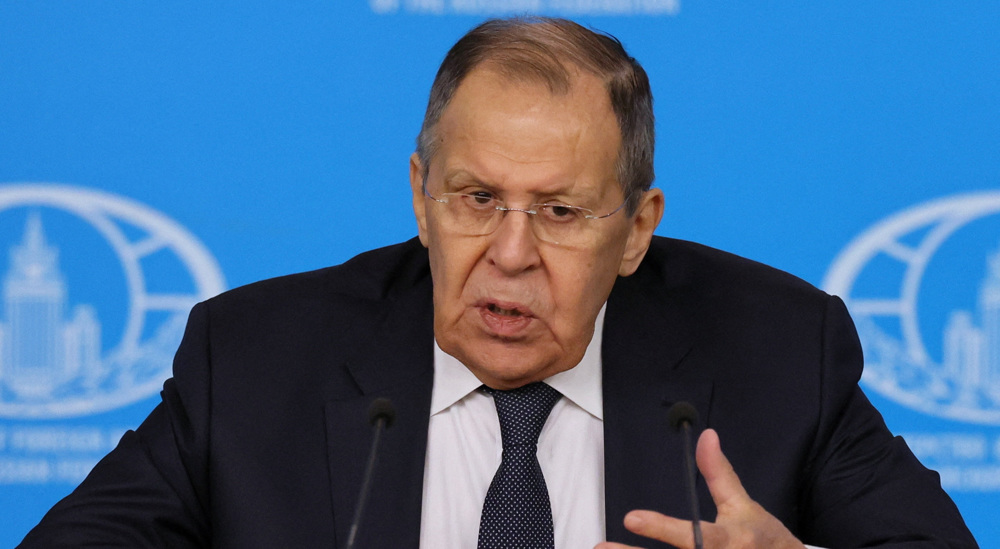




 This makes it easy to access the Press TV website
This makes it easy to access the Press TV website